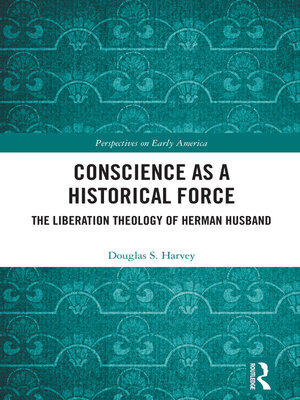Conscience as a Historical Force
ebook ∣ The Liberation Theology of Herman Husband · Perspectives on Early America
By Douglas Harvey

Sign up to save your library
With an OverDrive account, you can save your favorite libraries for at-a-glance information about availability. Find out more about OverDrive accounts.
Find this title in Libby, the library reading app by OverDrive.



Search for a digital library with this title
Title found at these libraries:
| Library Name | Distance |
|---|---|
| Loading... |
Conscience as a Historical Force is the first true analysis of the life and thought of the radically democratic eighteenth-century backcountry figure of Herman Husband (1724–1795) and his heavily metaphorical political and religious writings during the "Age of Revolution."
This book addresses the influence of religion in the American revolutionary period and locates the events of Herman Husband's life in the broader Atlantic context of the social, economic, and political transition from feudalism to capitalism. Husband's metaphorical reading of the Bible reveals the timeless nature of his message and its relevance today. Other studies of Herman Husband fail in this regard even though, this book argues, this is the most valuable lesson of his life. The debate over the importance of religion in the American Revolution has neglected its connection with both the English radicals of the seventeenth century and continental religious radicals dating back further still. Essentially, the "antinomian" movement, where individuals refused to acknowledge any power greater than that of their own conscience, was Atlantic in scope and dates to the origins of Christianity itself.
With a chronological approach, this study is of great use to students and scholars interested in the politics and religion of eighteenth-century America.







